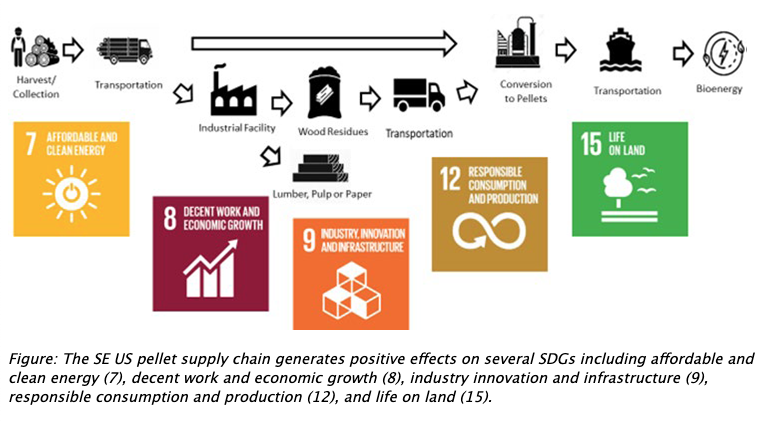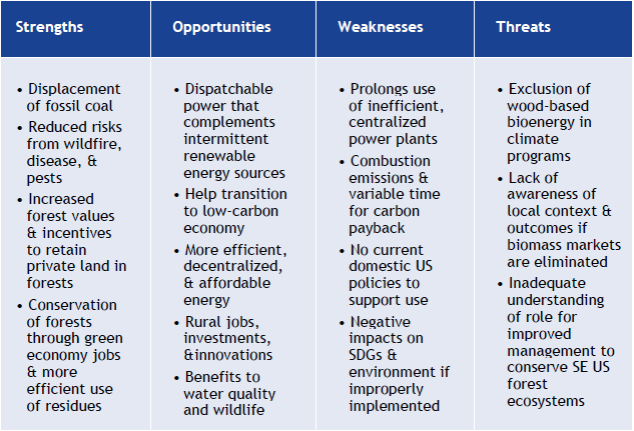New Publication – Wood pellets and Sustainable Development Goals – Southeast United States supply chain case study
Wood-based pellets are shipped from the Southeast US (SE US) to Europe to displace coal for generation of heat and power. This paper, produced within the frame of IEA Bioenergy Task 43 (Biomass Supply), evaluates the effects of pellet production and the supply chain on selected Sustainable Development Goals using industry information, available energy consumption data, and published research findings. Challenges associated with identifying relevant SDG goals and targets for this bioenergy supply chain and potential deleterious impacts are discussed. Strengths of the SE US pellet supply chain include provision of employment in economically depressed rural areas and the displacement of fossil fuels. Weaknesses include potential impacts on air, water, and biodiversity if the resource base and harvest activities are improperly managed. The SE US pellet supply chain provides an opportunity for transition to low-carbon industries while incentivising better resource management.
The full paper ‘Effects of Production of Woody Pellets in the Southeastern United States on the Sustainable Development Goals’, authored by K. Kline, V. Dale, E. Rose and B. Tonn, is published in Open Access at the Journal Sustainabilty and is available here: https://www.mdpi.com/2071-1050/13/2/821

EVALUATION OF THE SE US PELLET SUPPLY CHAIN
Close cooperation between regional and local stakeholders—including small forest landowners, forest sector industries and service providers, forest inventory and monitoring, and local communities—are critical for building the trust required to reap social, economic, and environmental benefits from the pellet supply chain. Reliable and timely data on forest conditions, including how pellet supply chains can be managed to increasingly support healthy and resilient forest ecosystems, are also important for making progress toward the SDGs and local development priorities.
CONCLUSIONS
The SE US pellet supply chain is important for forestry activities and investments in communities and ports servicing pellet processing mills. While the pellet supply chain is a small share of total biomass processed by SE US forest industries, sustainability requirements for pellets influence wider forestry practices and increase investments in conservation. While SDGs indicators provide common national targets, context-specific goals and indicators are recommended to assess effects of specific industries. The SE US pellet supply chain must adapt to site-specific social and environmental sensitivities as it responds to opportunities presented by high volumes of low-value forest resources lacking other markets. Continued monitoring, adaptive management, and stakeholder engagement are recommended.
The findings of this paper are also summarized in this case study of IEA Bioenergy Task 43.



